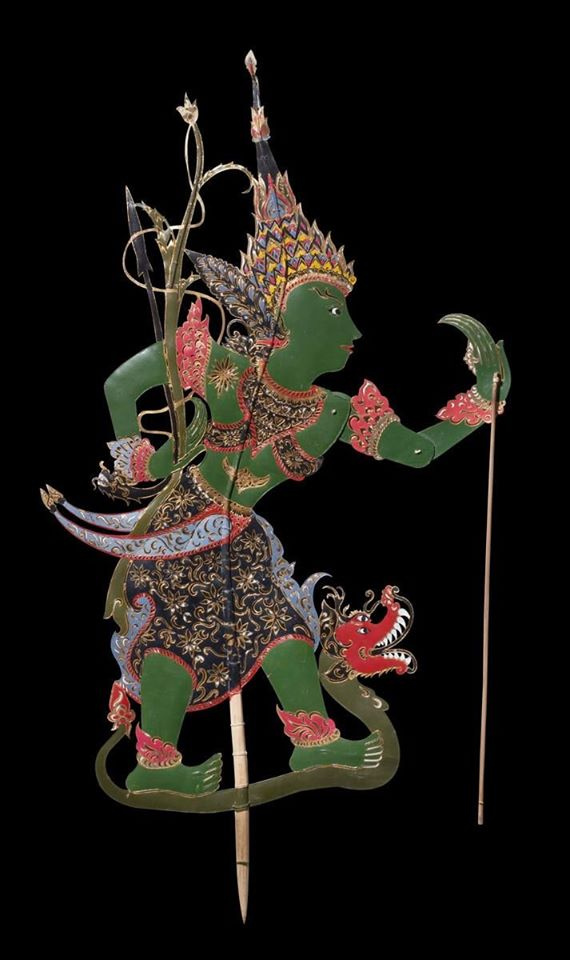
I recently read Harry Aveling’s elegant essay “The Translator Gives it Form: Translating Malay and Indonesian Literature“, itself written like a finely trimmed bonsai. I don’t translate all that much except when posting or quoting something in my writings for which no translation exists, or at least not one that suits my tastes.
Feeling energised, I decided to do a little exercise. I tried to translate this short excerpt from the Hikayat Seri Rama, a Malay retelling of the Ramayana epic. It’s a short but exquisite passage. If you read it, you will recognise instantly that this does not take place in Vedic India, but a kampong somewhere in the Malay lands. And this expresses the spirit of the Hikayat Seri Rama best; that it is no mere translation of the Indic Ramayana, but an entirely original branch from the great tree that constitutes the translingual Ramayana tradition stretching from Kashmir to Mindanao.
Tengah malam sudah terlampau
Dinihari belum lagi sampai
Budak-budak dua kali jaga
Orang tua berkaleh tidur
Embun jantan rintek-rintek
Berbunyi kuang jauh ka-tengah
Sorong lanting riang di-rimba
Terdenguk lembu di-padang
Sambut menguwak kerbau di-kandang
Bertempek mandong arak mengilai
Fajar sidik menyengsing naik
Kichak-kichau bunyi murai
Taptibau melambong tinggi
Menguku balam di-hujong bendul
Terdengut puyuh panjang bunyi
Puntong sa-jengkal tinggi dua jari
Itu-lah alamat hari hendak siang
The excerpt doesn’t say much except paint a gloriously lyrical portrait of daybreak. What I love most about it is the vocabulary employed to describe the different sounds made by four species of birds. The most intuitive thing to do, as Aveling would argue, is to translate this line by line. But R.O. Winstedt, the orientalist who studied this manuscript, chose instead to break up some lines into two, to allow it to flow better in English. This was his translation:
Long had past the hour of midnight,
Lingered yet the coming day-light;
Twice ere now had wakening infants
Risen and sunk again in slumber;
Wrapped in sleep were all the elders,
Far away were pheasants calling,
In the woods the shrill cicada
Chirped and dew came dropping earthwards,
Now lowed oxen in the meadows,
Moaned the buffaloes imprisoned,
Cocks, with voice and wings, responded.
And with feebler note the murai.
Soon the first pale streak of morning,
Rose and upwards soared the night-birds;
Pigeons cooed beneath the roof-tree,
Fitful came the quail’s long murmur;
On the hearth lay last night’s embers,
Foot-long brands burned down to inches,
Heralds all of day’s approaching.
It’s actually quite nice. But I have some issues, not least of which being the eloquent brevity of the original is lost to fit in additional clauses and particles so it ‘makes sense’ in English. This is also an issue with translating pantun, because literary Malay often requires very few words to convey meaning. Quite like a still-life painting. So what results is a more bloated piece that loses the original’s swift strokes and quick rhythm. In some cases, Winstedt’s chosen to change the meaning altogether by devising new images, as in “and upwards soared the night-birds”. I also don’t take too fondly to the line with “oxen” in “meadows”, for surely Winstedt must have had an Alpine pasture in mind, instead of a rustic Malay landscape.
What I tried to do was to stick to the line-by-line translation, except the penultimate verse which I somehow couldn’t squeeze into a single verse without awkwardness. I also realised a pattern in the original, which is an alternation between subject-verb-object and verb-subject-object. This, too, I tried to replicate in the English, because I found it rather an essential aspect to the rhythm of the original.
Midnight was now long past
Daybreak was yet to come
Children had twice awoken
Elders shifted in slumber
Dewdrops fell in specks
Calling now were distant pheasants
Insects merry chirped in the forest
Stirred the cows away in the fields
In reply lowed buffaloes in enclosure
Crowed the rooster his morning cackle
First light rolled heavenward
Chirrup and chatter did the murai
The nightjar sang in swelling pitch
Cooed the turtle-dove at the threshold
Murmured the quail its long note
Firewood a jengkal long
Now the width of two fingers
Certain signs of coming daylight
Bio
Faris Joraimi is an undergraduate at the Yale-NUS College in Singapore. An enthusiast of pre-modern Malay narrative traditions and material culture, his research interests lie in examining how they were shaped by the political economies in which they emerged. He also maintains a modest collection of antiquarian books, vintage textiles and vinyl records from and relating to the Malay world.